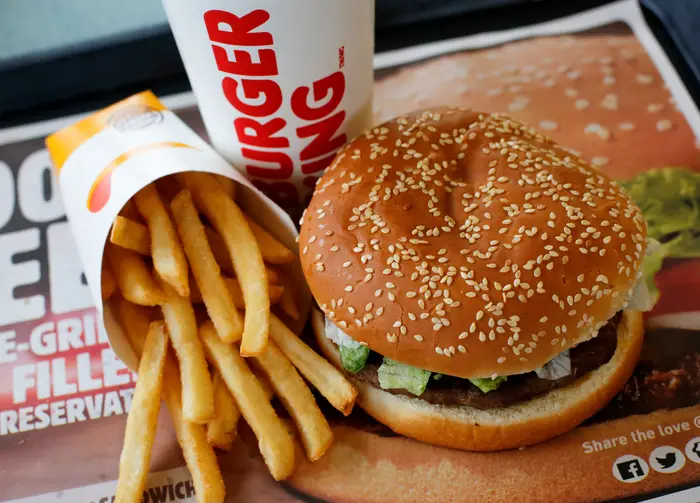Burger King, one of the world’s most iconic fast-food chains and home of the beloved Whopper, is making waves in the industry with its ambitious rebranding strategy. Despite rumors of the company shutting down entirely, Burger King is far from closing its doors for good. Instead, it’s embarking on a significant overhaul, involving the closure of underperforming locations and a $400 million modernization plan dubbed “Reclaim the Flame.”
This strategic initiative will reshape Burger King’s presence across the U.S., focusing on enhancing customer experience and ensuring long-term profitability.
Why Burger King Is Closing Hundreds of Stores
For years, Burger King has quietly closed various locations that failed to meet performance expectations. Now, the chain is ramping up these efforts, with plans to phase out at least 400 more restaurants nationwide. The closures will predominantly target franchises struggling to maintain operational standards, allowing the company to concentrate its resources on promising locations and high-performing franchises.
This calculated strategy aims to modernize Burger King’s image, making it more competitive in a saturated market dominated by fast-food heavyweights like McDonald’s, Wendy’s, and Shake Shack. By trimming the underperforming locations, the company aims to strengthen its overall brand and enhance the experience for loyal customers.
Inside the $400 Million Rebranding Campaign
The “Reclaim the Flame” initiative is no small feat. The $400 million plan involves upgrading everything from the menu to the physical design of the restaurants. By 2026, approximately 3,000 revamped Burger King locations will feature state-of-the-art kitchen technology, enhanced delivery systems, and even multi-lane drive-thrus to cater to the evolving needs of today’s customers.
The initiative also includes a significant advertising push to reignite customer interest and loyalty. Early reports suggest that these efforts are already yielding positive results, with profitability on the rise in some areas. With a focus on streamlining operations and elevating customer satisfaction, Burger King is proving that innovation is key to maintaining relevance in the fast-food sector.
A Competitive Edge in the Fast-Food Market
Burger King’s rebranding comes at a crucial time when competition in the fast-food industry is fiercer than ever. To stand out, the chain is not only updating its locations but also refining its menu to appeal to modern tastes. New menu items are designed to cater to health-conscious diners, while classic favorites like the Whopper are being showcased in fresh ways.
With an emphasis on technological innovation and customer-centric design, Burger King aims to position itself as a leader in convenience and quality. The addition of advanced kitchen technology and drive-thru enhancements will likely appeal to a consumer base that values speed and efficiency.
Learning from Competitors
Burger King isn’t the only fast-food giant investing in innovation. Competitors like McDonald’s have introduced unique offerings in global markets, such as Japan’s shrimp-based Ebi Filet-O Burger and India’s vegetarian McAloo Tikki Burger. These inventive menu items showcase how adapting to local tastes can boost a brand’s appeal.
Similarly, Burger King has already begun exploring region-specific menu items and flavors. This localized approach, combined with the broader modernization efforts, highlights the company’s commitment to staying relevant in an ever-changing industry. For instance, some locations are experimenting with plant-based options to attract a wider range of customers.
Addressing Customer Concerns
While the closures may be disappointing to some loyal customers, Burger King is working to ensure that these changes benefit the brand as a whole. The company has promised that the remaining locations will deliver an elevated dining experience, from improved ambiance to better service. By focusing on quality over quantity, Burger King hopes to rebuild trust and loyalty among its patrons.
Additionally, the modernization efforts are designed with sustainability in mind. Many of the new locations will incorporate eco-friendly practices, including energy-efficient appliances and reduced packaging waste. These initiatives align with growing consumer demand for environmentally responsible businesses.
The Role of Technology in the Rebranding Effort
One of the standout features of Burger King’s rebranding strategy is its embrace of technology. The chain is rolling out digital ordering systems, AI-powered drive-thru lanes, and enhanced delivery options. These advancements not only improve the speed and accuracy of service but also cater to the tech-savvy customer base that increasingly relies on convenience.
Burger King’s app has also been updated to offer personalized deals and a seamless ordering experience. These technological upgrades are part of a broader effort to meet the expectations of modern diners, who prioritize efficiency and customization in their dining choices.
Looking Ahead: The Road to 2026
By 2026, Burger King aims to complete its transformation, with thousands of remodeled locations and a refreshed brand identity. The chain’s leadership is optimistic about the future, citing early signs of success in its rebranding efforts. As the “Reclaim the Flame” campaign progresses, customers can expect a revitalized Burger King that combines the best of tradition and innovation.
For customers, these changes mean better service, improved facilities, and perhaps even some exciting new menu items in the near future. For the fast-food industry, Burger King’s bold move signals the importance of adaptability and innovation in maintaining a competitive edge.

